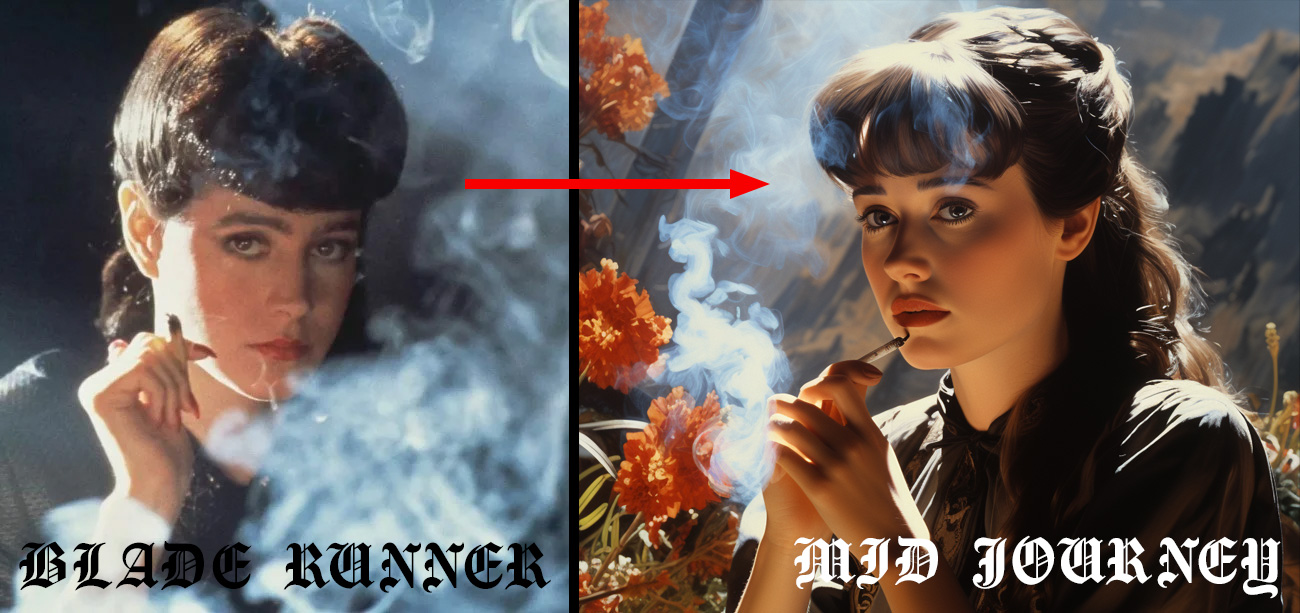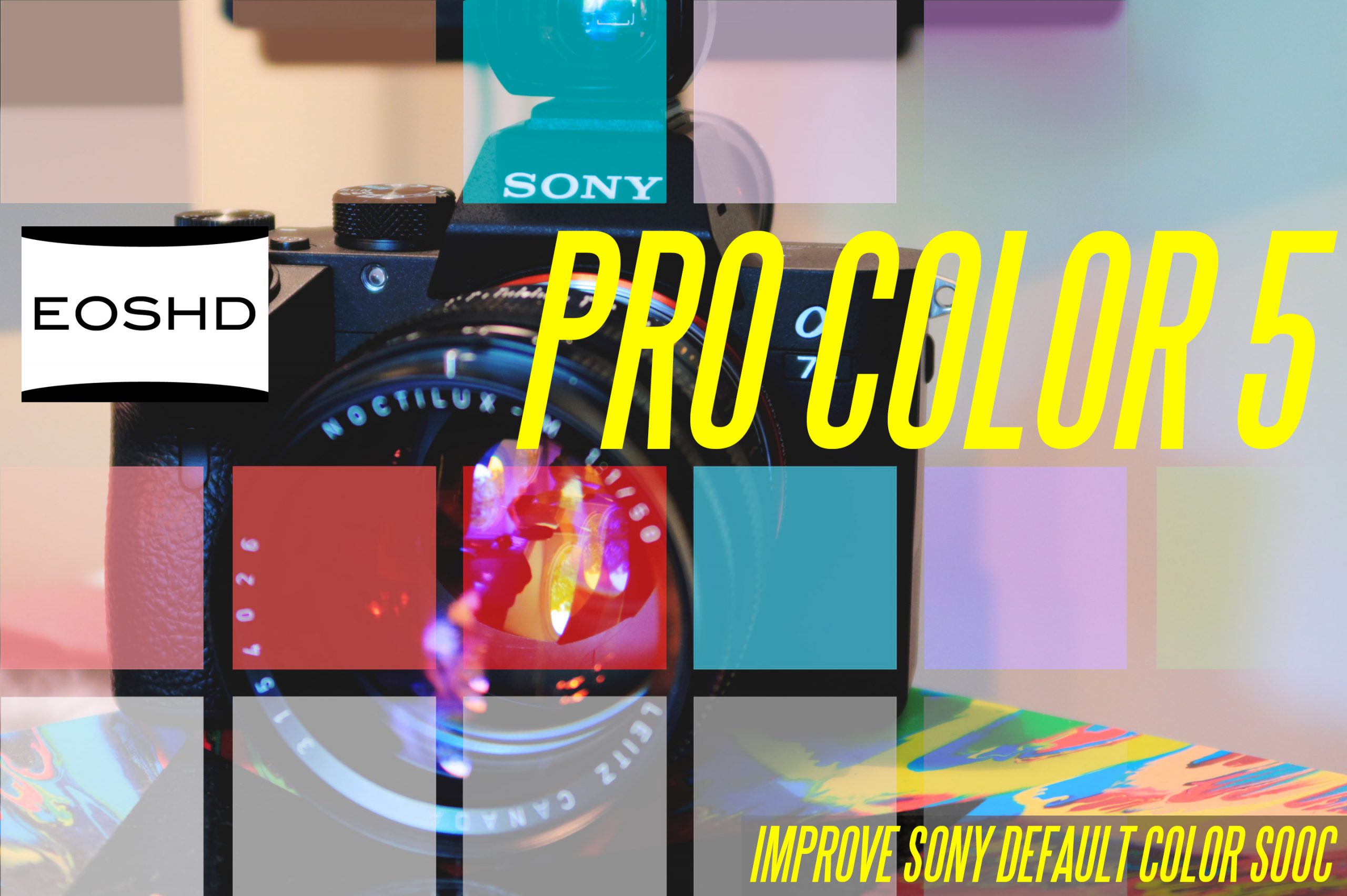
Filmmaking is an art form. In the realm of creativity, people often crave the authenticity that only real humans can provide. This is why blockbusters often enlist well-known actors to generate interest and why, despite our daily reliance on them, our personal computers don’t make headlines in gossip columns.
In just one year, MidJourney has gone from making quite interesting, abstract art in the earlier versions, to making very stylish eye candy. The quirky original early AI style has been lost.
That says a lot about the future of AI, in that it may be too good. Too perfect.
The great thing about human art is the unpredictable weirdness and imperfect nature of it. What the modern film industry lacks too, is that same spontaneity, unprofessionalism and risk-taking, creative accidents. This is what sets apart some of the earlier more buccaneering cinema to now. The movie world has become too professional, too safe.
AI is destined to end up the same way with strict safety standards built into the models. It might be difficult to make AI generate original ideas and controversial content.
It might be difficult to avoid cliches, as by definition it only produces derivative works.
This means that AI is a creative tool to assist the human in their film writing, cinematography or virtual set design. It cannot fully take over, it has to be edited, prompted and bent to your intent as a director of the AI tool.
AI art generated purely by AI that springs out of nowhere is going to be a best a niche. With no human behind it, it will be hard to get people to care – it has an authenticity problem. It is trying to look, feel and sound like human art and that is something it isn’t.
Sure, there’s a lot of uncreative and derivative content out there on the internet that can now be done with a simple prompt. In this way AI is a threat to the “filler” produced at a high rate by content creators who aren’t trying to be artistic. Their stuff doesn’t need to be a work of art and doesn’t need to be particularly original. Nobody even cares who makes it.
Just as you’d be ok with fast food being made by machines though – you’re probably not willing to pay in a fancy restaurant for a machine manufactured dish. It’s the same with movies, and writing. A blogger on Nofilmschool could easily be replaced by AI. EOSHD, not so much 😉
Would the AI have a 10 year grudge against Canon over a “cripple hammer”? I doubt it.
Human beings are irrational and emotional, but that’s what makes us so interesting. Likewise, humans connect with other humans. AI for now remains a faceless robot. A shapeshifting nothingness with no set identity. If ChatGPT one day wrote a movie all by itself and starred in it, it’s questionable whether anybody would give a toss.
When the crowds look at a movie poster outside a cinema, do they go for the one starring Brad Pitt or the one starring a made up actor powered by Microsoft Azure?
How would such a synthetic piece of content be promoted? Would the AI actor sit-down with Conan with a load of made-up life stories and fake anecdotes? Where is the appeal in that beyond a one off novelty appearance? It doesn’t sound very appealing to me. People care about human beings.
The other oversight when people say that AI will take actors jobs is that AI currently takes no physical form. I’d much rather gaze at Emma Watson on TV than a PC rolling around on a stand or a hologram.
A big obstacle for AI to ‘go it alone’ in the creative industries, aside from a lack of physical form and no consciousness, is that AI models lack individual real, personal and subjective life experiences. The ones it can come up with are not authentic or actually personal. These have to be synthesised from a large language model database, so the AI creator of the arts remains a figment of machine imagination rather than a real celebrity human being.
Whenever a movie comes out, you’re interested in the humans behind it and the personal endeavour that went into it. What’s Kubrick’s story of making 2001, what was his life and career leading up to it, and what about his personal life? AI can only fake all of this, and just as we’re not interested in people who pretend to be Kubrick, we’re not going to be interested in machines pretending to be Kubrick, other than to marvel technically at it or to use it as a tool in our filmmaking process.
It is in that way I think AI is brilliant.
As a tool, with the right prompting it can come up with very good material, ideas and imagery that can in-turn prompt you as the human into doing something worthwhile with this material, and making your mark on it. Editing my own ideas into it like weaving a digital tapestry is very appealing. AI can also help writers overcome writer’s block, stay focused, stay in a flow and give them outlines of new stories, scenes and characters in a few seconds. It is a tool of inspiration, and the same goes for the generative visual AI like MidJourney. It can give you some really interesting styles and ideas to try out in real world photography or cinematography.
The prompts will eventually turn from text based ones, towards a fully fledged graphical user interface and physical controls. This then gives the human being MORE input to determine the outcome of the images or writings, and takes automation away from the AI. So the AI is going to evolve towards us and not away from us.
When this happens we will have AI augmented human art and that does not replace you, or eliminate jobs – it does the opposite. It creates demand and the need for new jobs.
Eventually as the tools evolve, of course they are going to be able to bring your imagination to life on a screen – be it films, characters, fully fledges scripts that might even be good enough to be pitched to a movie studio… But only on screen. The real physical world remains for now unbothered as all the AI action is taking place between your head and a screen in the corner of a room.
What emanates from this should be interesting to see, in the way it evolves human discourse and art, and influences other filmmakers.
This definitely lowers the barrier to filmmaking just as affordable DSLRs did.
But as with saw with DSLRs, what happened?
After the dust settled, the industry went back pretty much to how it was before. Affordable cinema cameras did not fundamentally change the hierarchy of the film industry or take jobs away from Hollywood. If anything, the DSLR revolution created jobs, especially in the more ‘everyday’ areas of filming online content for example.
With the routine world of content, perhaps AI could allow one writer to do the job of 5 or 10.
But when it comes to high level art and creative work, there’s still only you with your hand on the tiller.
And if anything, if fully human made movies & photography with no CGI or AI become rarer that only makes them more valuable.



